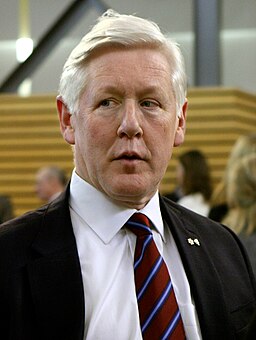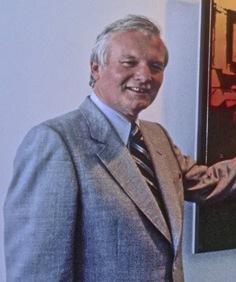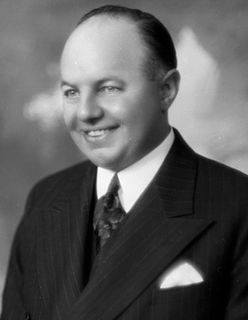This article does not cite any sources .(December 2009) (Learn how and when to remove this template message) |
| |||||||||||||||||||||||||||||||||||||||||||||||||||||||||||||||||
90 seats in the 23rd Legislative Assembly of Ontario 46 seats were needed for a majority | |||||||||||||||||||||||||||||||||||||||||||||||||||||||||||||||||
| |||||||||||||||||||||||||||||||||||||||||||||||||||||||||||||||||
| |||||||||||||||||||||||||||||||||||||||||||||||||||||||||||||||||

The Ontario general election of 1948 was held on June 7, 1948, to elect the 90 members of the 23rd Legislative Assembly of Ontario (Members of Provincial Parliament, or "MPPs") of the Province of Ontario, Canada.
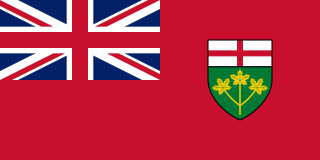
Ontario is one of the 13 provinces and territories of Canada and is located in east-central Canada. It is Canada's most populous province accounting for 38.3 percent of the country's population, and is the second-largest province in total area. Ontario is fourth-largest jurisdiction in total area when the territories of the Northwest Territories and Nunavut are included. It is home to the nation's capital city, Ottawa, and the nation's most populous city, Toronto, which is also Ontario's provincial capital.
The Ontario Progressive Conservative Party, led by George Drew, won a third consecutive term in office, winning a solid majority of seats in the legislature—53, down from 66 in the previous election.

George Alexander Drew, was a Canadian conservative politician who founded a Progressive Conservative dynasty in Ontario that lasted 42 years. He served as the 14th Premier of Ontario from 1943 to 1948.
Despite winning a majority, Drew lost his own seat to temperance crusader Bill Temple. Instead of seeking a seat in a by-election, Drew left provincial politics to run for, and win, the leadership of the federal Progressive Conservative Party.

The temperance movement is a social movement against the consumption of alcoholic beverages. Participants in the movement typically criticize alcohol intoxication or promote complete abstinence (teetotalism), with leaders emphasizing alcohol's negative effects on health, personality, and family life. Typically the movement promotes alcohol education as well as demands new laws against the selling of alcohols, or those regulating the availability of alcohol, or those completely prohibiting it. During the 19th and early 20th centuries, the temperance movement became prominent in many countries, particularly English-speaking and Scandinavian ones, and it led to Prohibition in the United States from 1920 to 1933.

William Horace (Bill) Temple, nicknamed "Temperance Bill" or "Temperance Willie", was a Canadian democratic socialist politician, trade union activist, businessman and temperance crusader. As a youth he worked for the railway. During World War I, and World War II he was a soldier in the Royal Naval Air Service and the Royal Canadian Air Force. Between the wars, he was a salesman, and then he started a clothing import business. He became a socialist during this period, and joined the Co-operative Commonwealth Federation (CCF) when it was formed. He ran for political office many times for the CCF, both federally and provincially. The highlight of his political career was in 1948, when he defeated the incumbent premier of Ontario George Drew in his own legislative seat, in the electoral district of High Park, even though the premier's party won the general election with a majority government. His tenure was relatively short, serving only one term, and was defeated in the 1951 provincial election, and went back into the clothing import business. In his later years, he successfully led the political fight to maintain the prohibition on selling alcohol in a section of Toronto's west end, winning three referenda in the 1960s, 1970s and 1980s. He died in the spring of 1988, a few months before another referendum on lifting the restrictions on alcohol in the area was again defeated, his "last" victory.
By-elections, also spelled bye-elections, are used to fill elected offices that have become vacant between general elections.
Drew was replaced as Ontario PC leader and premier by Thomas Kennedy on an interim basis, and then by Leslie Frost.
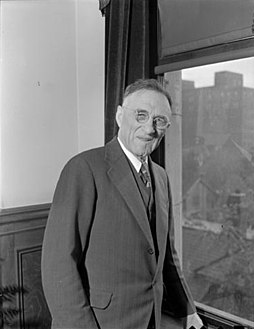
Thomas Laird Kennedy was a politician in Ontario, Canada and served briefly as the 15th Premier of Ontario. He was first elected as the Conservative member for Peel in the 1919 provincial election. He had been a longtime resident of Streetsville, Ontario, where he was Master of River Park Masonic Lodge in 1908 and 1909; Streetsville is now part of Mississauga.

Leslie Miscampbell Frost, was a politician in Ontario, Canada, who served as the 16th Premier of the Province of Ontario from May 4, 1949 to November 8, 1961. Due to his lengthy tenure, he gained the nickname "Old Man Ontario"; he was also known as "the Silver Fox".
The Ontario Liberal Party, led by Farquhar Oliver, increased its caucus from 11 to 14, but lost the role of official opposition. Only one of the three Liberal-Labour MPPs sitting with the Liberal caucus, James Newman, was re-elected.
The Ontario Liberal Party is a provincial political party in the province of Ontario, Canada. The party is ideologically aligned with the Liberal Party of Canada but the two parties are organizationally independent and have separate, though overlapping, memberships.

Farquhar Robert Oliver was a politician in Ontario, Canada.
The Liberal-Labour banner has been used several times by candidates in Canadian elections:
The social democratic Co-operative Commonwealth Federation (Ontario Section), led by Ted Jolliffe, formed the official opposition by increasing its caucus from 8 to 21 seats.
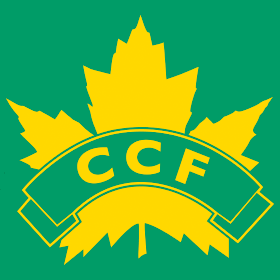
The Co-operative Commonwealth Federation – The Farmer-Labor Party of Ontario, or more commonly known as the Ontario CCF, was a democratic socialist provincial political party in Ontario that existed from 1932 to 1961. It was the provincial wing of the federal Co-operative Commonwealth Federation (CCF). The party had no leader in the beginning, and was governed by a provincial council and executive. The party's first Member of the Legislative Assembly (MLA) was elected by voters in the 1934 Ontario general election. In the 1937 general election, no CCF members were elected to the Ontario Legislature. In 1942, the party elected Toronto lawyer Ted Jolliffe as its first leader. He led the party to within a few seats of forming the government in the 1943 general election; instead, it formed the Official Opposition. In that election, the first two women were elected to the Ontario Legislature as CCFers: Agnes Macphail and Rae Luckock. The 1945 election was a setback, as the party lost most of its seats in the Legislature, including Jolliffe's seat. The party again became the Official Opposition after the 1948 general election, and defeated the Conservative premier George Drew in his seat, when Bill Temple unexpectedly won in the High Park constituency. The middle and late 1940s were the peak years for the Ontario CCF. After that time, its electoral performances were dismal, as it was reduced to a rump of two seats in the 1951 election, three seats in the 1955 election, and five seats in the 1959 election. Jolliffe stepped down as leader in 1953, and was replaced by Donald C. MacDonald.
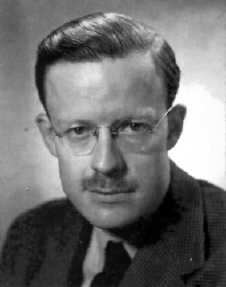
Edward Bigelow "Ted" Jolliffe was a Canadian social democratic politician and lawyer from Ontario. He was the first leader of the Ontario section of the Co-operative Commonwealth Federation (CCF) and leader of the Official Opposition in the Ontario Legislature during the 1940s and 1950s. He was a Rhodes Scholar in the mid-1930s, and came back to Canada to help the CCF, after his studies were complete and being called to the bar in England and Ontario. After politics, he practised labour law in Toronto and would eventually become a labour adjudicator. In retirement, he moved to British Columbia, where he died in 1998.
Two Toronto seats were won by Labor-Progressive Party MPPs J. B. Salsberg and A.A. MacLeod. The LPP was the official name of the Communist Party of Ontario. The LPP only ran two candidates, Salsberg and MacLeod, in 1948 down from 31 candidates in 1945.




